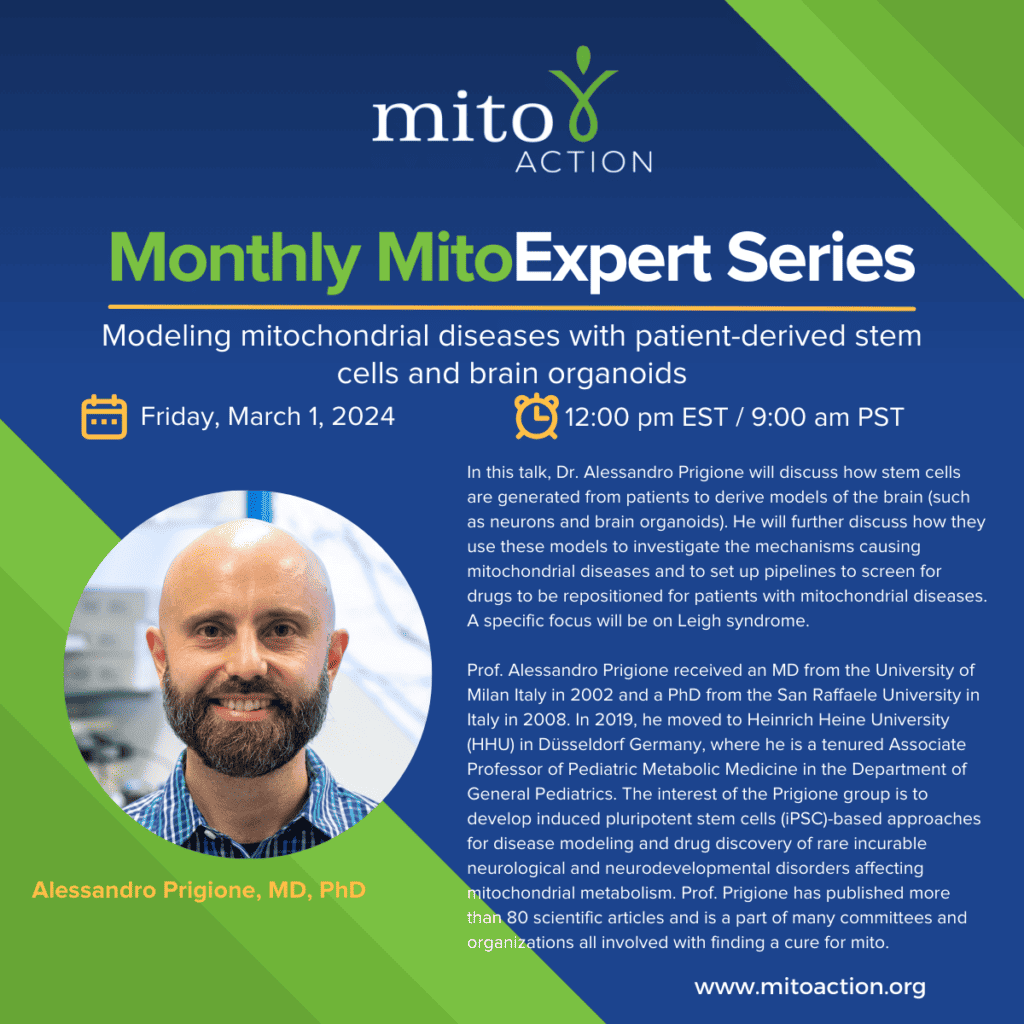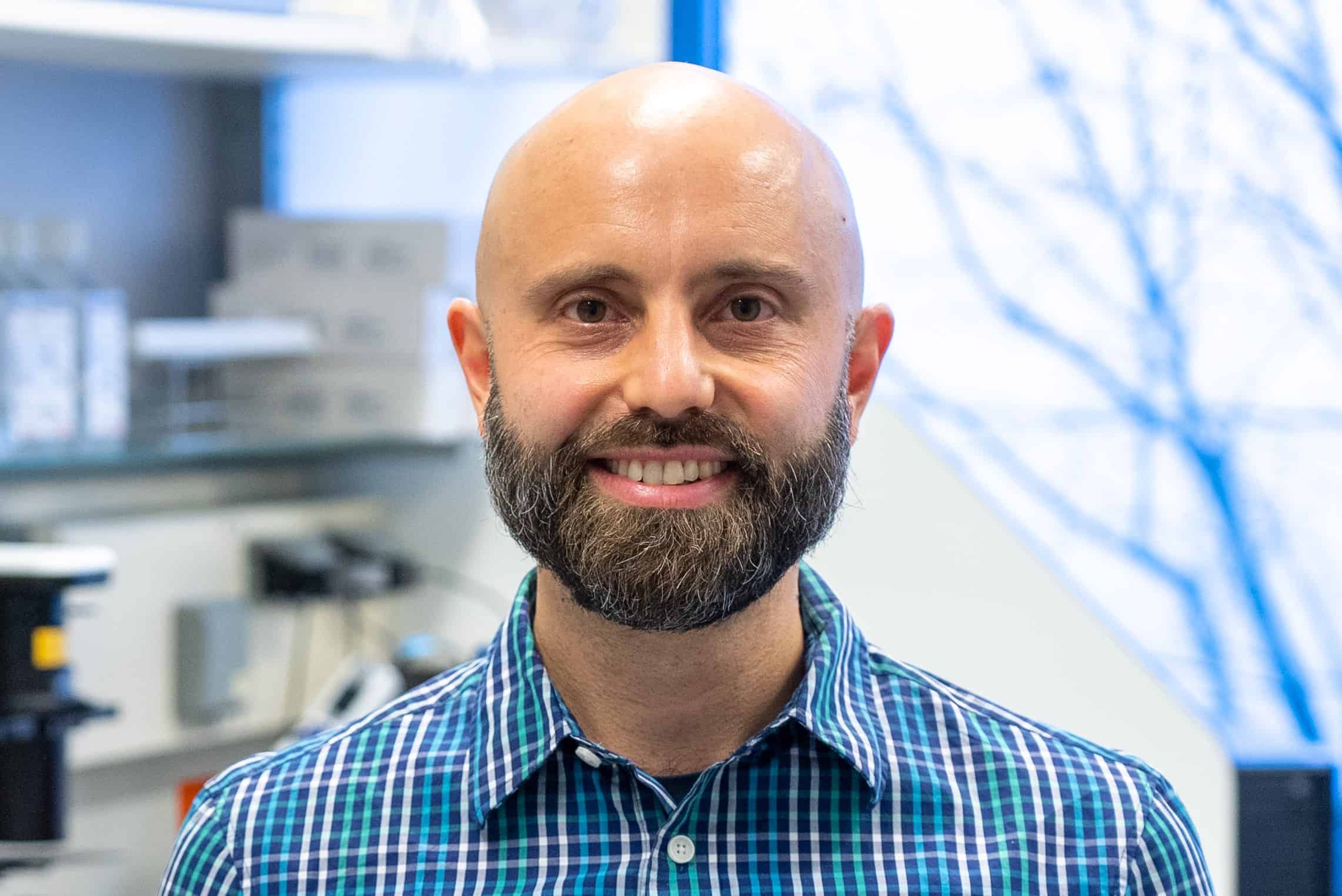
- This event has passed.
Expert Series: Modeling mitochondrial diseases with patient-derived stem cells and brain organoids
March 1 @ 12:00 pm – 1:00 pm EST

In this talk, Dr. Alessandro Prigione will discuss how stem cells are generated from patients to derive models of the brain (such as neurons and brain organoids). He will further discuss how they use these models to investigate the mechanisms causing mitochondrial diseases and to set up pipelines to screen for drugs to be repositioned for patients with mitochondrial diseases. A specific focus will be on Leigh syndrome.
About the Speaker

Alessandro Prigione, MD, PhD
Prof. Alessandro Prigione received an MD from the University of Milan Italy in 2002 and a PhD from the San Raffaele University in Italy in 2008. During his training, he worked on neurological disease at University of Milan-Bicocca Italy, mitochondrial diseases at University California Davis (UCD) USA, mouse induced pluripotent stem cells (iPSCs) at San Raffaele Scientific Institute in Milan Italy, and human iPSCs at the Max Planck Institute in Berlin Germany. In 2014, he established his junior group at the Max Delbrueck Center for Molecular Medicine (MDC) in Berlin Germany. In 2019, he moved to Heinrich Heine University (HHU) in Düsseldorf Germany, where he is a tenured Associate Professor of Pediatric Metabolic Medicine in the Department of General Pediatrics.
The interest of the Prigione group is to develop induced pluripotent stem cells (iPSC)-based approaches for disease modeling and drug discovery of rare incurable neurological and neurodevelopmental disorders affecting mitochondrial metabolism. A specific focus is on Leigh syndrome, which is the most severe mitochondrial disease affecting children. Using neurons and brain organoids from patients with Leigh syndrome, they are dissecting the neuronal-specific disease mechanisms in order to identify targets on interventions. The lab applies genome editing technologies to nuclear and mitochondrial genome to develop engineered disease models. They employ the models to perform compound screenings using high-content imaging approaches. The search of therapies for Leigh syndrome is the focus of an international project coordinated by Prof. Prigione that is called CureMILS and is funded by the European Joint Programme for Rare Diseases (EJPRD).
Prof. Prigione has published more than 80 scientific articles (h-index: 34). He is a member of the International Society for Stem Cell Research (ISSCR), the scientific council of AFM Telethon, the Scientific Committee of the World Congress on Targeting Mitochondria, and the Scientific Committee of Mitocon. He is a scientific advisor for Cure Mito Foundation and was a member of the Scientific Program Organizing Committee for Euromit 2023 and for the International Meeting Stem Cell Network NRW 2023. He is the recipient of the Career Advancement Initiative from the Journal of Molecular Biology in 2017 and the Award for Outstanding Achievements by the World Mitochondria Society in 2021. Since May 2021, Prof. Prigione is the Editor-in-Chief of the journal Stem Cell Research (Elsevier).










